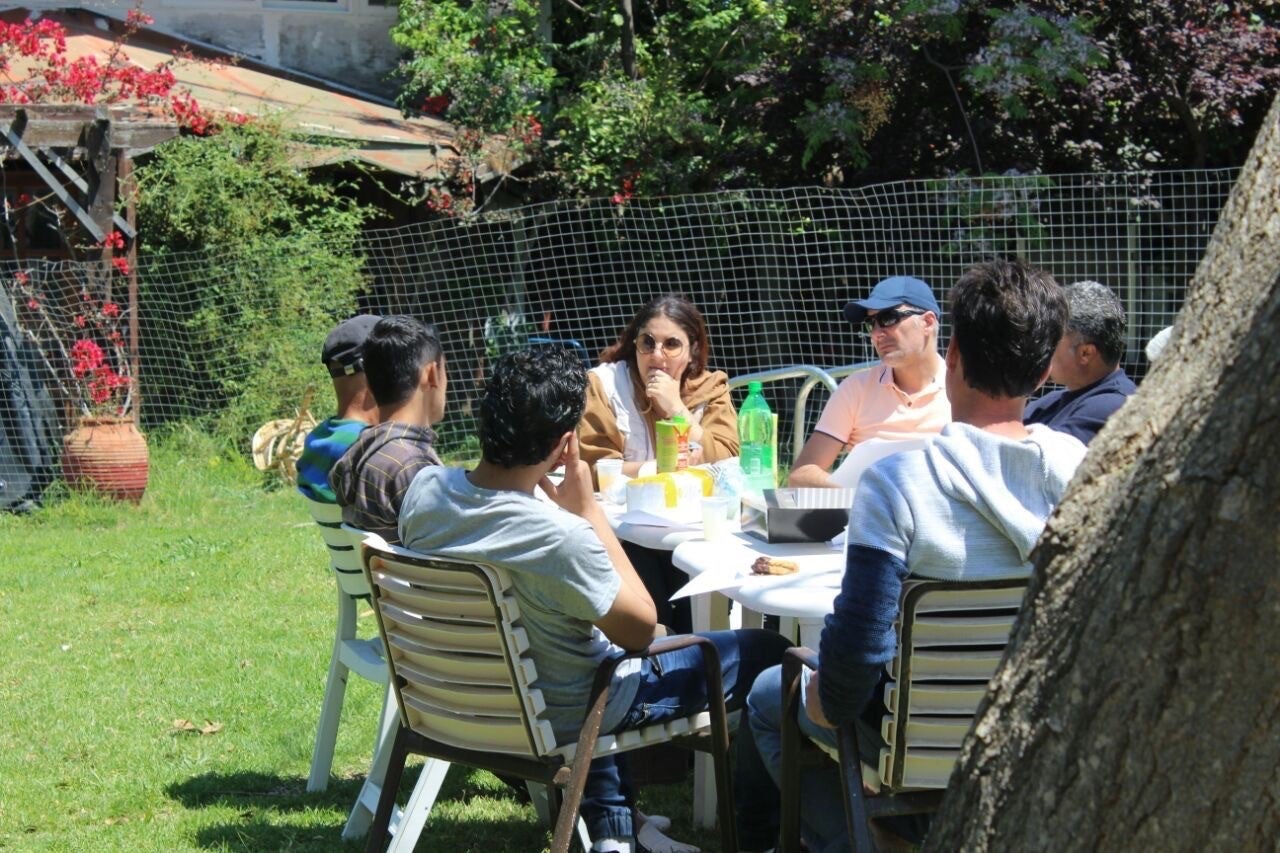Every day, more than 44,000 people are forced to flee their homes because of conflict and persecution. Forced displacement increases the risks of gender-based violence (GBV), especially intimate partner violence. In some humanitarian settings, sexual violence—by both partners and non-partners—is also exacerbated.
Girls’ mobility is often restricted, and rates of child marriage may increase. Women and girls can experience violence at every stage of their journeys, including at camps, transit countries, when they reach their destinations, and when they return home to a war-ravaged setting.
Despite these challenges, to date there has been very little research to identify effective interventions to prevent and address GBV in humanitarian settings.
The World Bank Group and Sexual Violence Research Initiative (SVRI) are working to try to build the evidence base through the Development Marketplace: Innovations to Address Gender-Based Violence. Over the last three years, 30 research projects in 25 low- and middle-income economies have been awarded more than $3.4 million.

Among these, projects in Lebanon, Greece, Ethiopia, and Rwanda are building knowledge on the drivers that increase GBV in these settings, along with how to prevent and respond to GBV among refugees. During the 16 Days of Activism Against GBV, we’d like to shine a spotlight on them:
- 2016 Development Marketplace award-winning researchers from Queen’s University and the ABAAD Resource Center for Gender Equality have investigated factors that contribute to child marriage among Syrian refugees. In addition to the profound negative impact on girls’ physical and psychological health, child marriage limits access to formal education and increases vulnerability to GBV. Girls who marry early are a greater risk of experiencing intimate partner violence, and tend to be less healthy, less productive and less empowered, which has far-reaching impacts that extend to the next generation. A 2017 report by the World Bank and the International Center for Research on Women found that by 2030, child marriage will cost developing countries trillions of dollars. The Lebanon study revealed that a complex myriad of factors is responsible for child marriage among Syrian refugees, including poverty, lack of educational opportunities, and concerns about harassment and GBV during displacement. Men and women in the group have different views about the most important causes of child marriage. This suggests that gender-specific strategies may be most effective. This year, Researcher Dr. Susan Bartels delivered a TED Talk, "Why the World Marries," on the study findings.
- Also in 2016, Women and Health Alliance (WAHA) International won Development Marketplace funding to conduct in-depth interviews, focus group discussions, and participatory learning among Syrian women and men in numerous sites in Greece. Healthcare providers in refugee camps had reported seeing a shift from refugees presenting with acute physical health issues to them presenting with mental health disorders, and found there was a heightened risk of GBV. The resulting study showed that among refugees in Greece, addressing mental health disorders and GBV should be prioritized, including psychosocial training for healthcare providers and strengthening referral mechanisms for specialized care. The findings also emphasize the importance of incorporating female healthcare providers and interpreters into medical teams, and highlighted a need for coordination between NGOs and health authorities.
- In 2017, a multi-disciplinary team of physicians, academics, practitioners and journalists from Fondation Hirondelle, Harvard T.H. Chan School of Public Health, Addis Ababa University School of Public Health and Women and Health Alliance International Ethiopia received a Development Marketplace award to explore using podcasts to prevent intimate partner violence among Somali refugees in Dollo Ado, Ethiopia. The researchers are training men and women in refugee camps in digital storytelling and podcasting. Refugees are being empowered to develop podcast content that they believe will transform gender norms and behaviors in their community. These podcasts allow people to share their own stories, as well as create opportunities for community-based dialogue.
- The 2018 Development Marketplace awards are helping Fundación Plan International España and Johns Hopkins Bloomberg School of Public Health to study whether empowerment training, delivered during the provision of efficient and clean cooking technology, can impact gender-based violence in a refugee camp setting in Rwanda. Targeted empowerment training, undertaken over 3-4 days, aims to improve mental health and increase personal agency, as well as improve uptake and use of clean fuels and cookstoves. This has already been shown to enhance productivity, self-efficacy, and fortitude. The next stage of this study, which is engaging men as well as women, will establish if it has an impact on GBV.
Globally, we are now seeing the highest levels of displacement on record. An unprecedented 68.5 million people have been forced from their homes, including nearly 25.4 million refugees. This adds extra urgency to the need to close evidence gaps and identify how to reduce and respond to the risks of GBV in humanitarian settings.
For more information about the impact of the Development Marketplace: Innovations to Address GBV, see our earlier blog, Innovative research has an impact against gender-based violence.



Join the Conversation